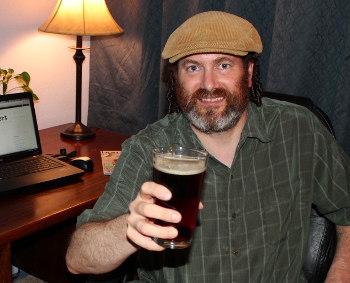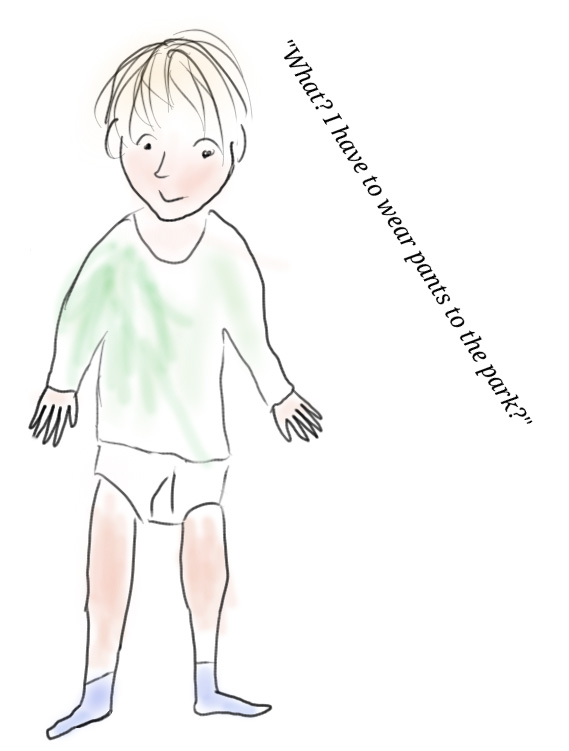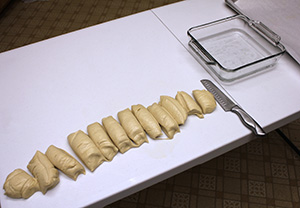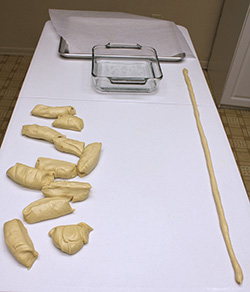A Pint with the Professor: Heuristics and Character Archetypes
Heuristics and Character Archetypes
One thing people are not often aware of is the sheer number of shortcuts the brain takes when processing information. We see what we see, right? Well, not really. Believe it or not, human vision is actually full of many problems, but the brain sorts it all out, and pulls it together into the image that we perceive. Since this introduces quite a lot of opportunity for error, one might ask why this is something that the human brain does instead of working toward more accurate processing of information. Well, the reason for that is because the brain only has a finite capacity to take in and process information. So the brain has to work to limit the amount of information that comes in. Also, the brain works to reduce the processing time in order to be most efficient. The brain uses heuristics, which are mental shortcuts that we are not even aware are occurring. About.com provides an effective and efficient definition, “A heuristic is a mental shortcut that allows people to solve problems and make judgments quickly and efficiently. These rule-of-thumb strategies shorten decision-making time and allow people to function without constantly stopping to think about their next course of action.”
Dramatica Character Archetypes
This is why I think character archetypes can work well in writing fiction. The brain, already primed to seek familiar information so that it can efficiently process information, is already primed to look for the familiar. Heuristics are things that have worked for us in the past. For example, we tend to judge people based on our experiences with similar people in the past. Instead of starting over with learning about this new person, our brain tries to take some mental shortcuts to help us formulate an opinion of this new person, based on our past experiences. For example, we may see someone with a nifty hat, and remember a brilliant psychology teacher that had a smart collection of sharp looking hats. This might help us to immediately trust the opinion of this handsome new devil, based on our experience with such a person in the past.
Wikimedia, Creative Commons LicenseThis is why I think archetypes work, to a certain extent. We look for the familiar in the characters we read, and archetypes help us to quickly identify and classify a character. I love the Dramatica character archetypes, because they are broad enough to allow for creativity in exactly how the archetypes are applied, but we can quickly find the familiar when we are presented with them.
Unfamiliar Familiarity
In my consumption of fiction, I think that a really well crafted story is one balances novel stimulus with familiar stimulus. For example, if I write, “The man spat on his hand as he hopped around in circles with one toe in his ear;” that is wacky, odd, and not likely to be something I would identify with. In other words, it is too unfamiliar because it is well outside my familiarity with how people behave. A story that is too predictable can be boring. In my estimation then, it is that delicate and artistic balance between enough familiarity to help the reader feel like they know what is going on, with enough surprise to keep the reader guessing and turning the pages. Archetypes then help the writer present a character that has enough familiarity to help so that the reader does not feel completely lost. The Dramatica archetypes are also broad enough that they allow for creative application, so that each character can still be unique in meaningful ways.









 Writing on the go, to me, is just called writing. I am always on the go. I have an active life, and I am busy with many things. Therefore, an important part of any tool for me is portability. I have a smartphone, a tablet, a laptop, and a desktop that I use for writing. I prefer my desktop over everything else, but I have the others because life has other demands for me. One big thing I looked for in my writing tool is the portability, and the ability to work across multiple platforms.
Writing on the go, to me, is just called writing. I am always on the go. I have an active life, and I am busy with many things. Therefore, an important part of any tool for me is portability. I have a smartphone, a tablet, a laptop, and a desktop that I use for writing. I prefer my desktop over everything else, but I have the others because life has other demands for me. One big thing I looked for in my writing tool is the portability, and the ability to work across multiple platforms.

